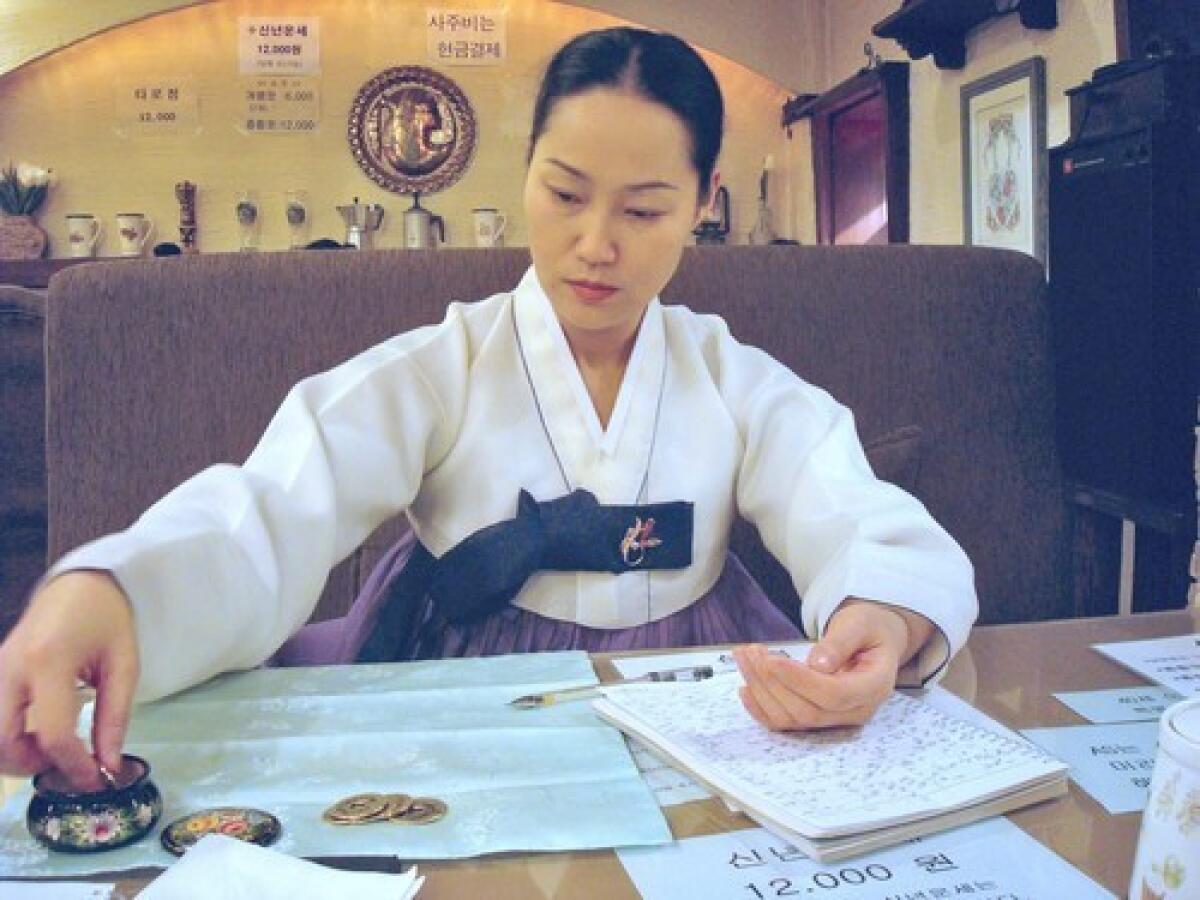Put Clair Voyant down as a reference

- Share via
Reporting from Seoul — Poised to enter a cutthroat job market, college art student Kim Tae-eun showed up for a crucial interview the other day nervous and dressed to the nines.
She wasn’t meeting with a job counselor or head hunter -- she needed real results. She needed a fortuneteller.
“I can see blue dragons rising behind your back,” Jeong Jae-jik, a gymnast-turned-job prophet, told the relieved 22-year-old at a crowded coffeehouse here. “All of your work will be fine, believe me.”
In South Korea, a modernized nation that nonetheless keeps in touch with an ancient culture of mysticism, young job seekers hope to peer into the future with a little help from the past.
According to a poll in January of 1,557 job hunters by a recruitment Web portal called Career, nearly 60% had consulted a fortuneteller or were planning to do so.
The biggest reason: The gloomy prospects of a severely depressed job market call for extraordinary measures, they say.
Seoul has hundreds of fortunetelling cafes. During the 1997 Asian financial crisis, the industry was reportedly among the few that flourished, and this recession seems to be no different.
Paik Woon-san, chairman of the Assn. of Korean Prophets, said reading fortunes was a recession-proof profession.
“One hundred percent of the people who consult me follow my advice,” said Paik, who claims that more than 300,000 fortunetellers are practicing in South Korea.
Experts say that consulting a seer isn’t as unusual as it sounds.
“Fortunetellers can give a clear direction by saying ‘do and don’t,’ which attracts many people,” said Yang Yoon, a psychology professor at Ewha Womans University. “It is not a scientific method and cannot solve problems directly. However, people feel secure during a chat with a fortuneteller even if their situation can change further.”
These crystal balls don’t just focus on the job market. South Koreans visit fortunetellers before getting married, changing residences or starting a new job.
They seek out places known as saju cafes, where a gaggle of fortunetellers can hang their shingles, charging $10 to $15 for up to a half-hour session.
In Korean culture, a person’s life is anchored by four pillars -- one each for birth year, month, day and time. Fortunetellers say that the positioning of the pillars points in a certain direction.
“Reading a person’s fate is more accurate than any vocational testing,” said Jeong, a monkish-looking man dressed entirely in gray. “I am very proud to suggest a clear vision for people.”
At a cafe called Funny Sculptor near Seoul’s Hongik University, four fortunetellers recently plied their trade.
“You were born to acquire a very stable job at the early age. Financial or accounting fit well to your fate,” one seer who went by the name Hyunam told one woman as she fingered grains of rice as a way to get in touch with her future-reading powers.
Some customers are skeptical of what they hear.
“I don’t trust my fortuneteller 100%,” said one 30-year-old unemployed woman, who declined to give her name. “But I carefully listen and take some of his advice.”
After seeing her seer, art student Kim Tae-eun was optimistic about the future. Her prophet said she saw a job in the fashion industry in her cards. And she threw in a bit of financial advice as well.
“I will keep in mind that my fortuneteller warned me to keep my money from slipping out of me.”
Park is with The Times’ Seoul Bureau.
More to Read
Sign up for Essential California
The most important California stories and recommendations in your inbox every morning.
You may occasionally receive promotional content from the Los Angeles Times.













